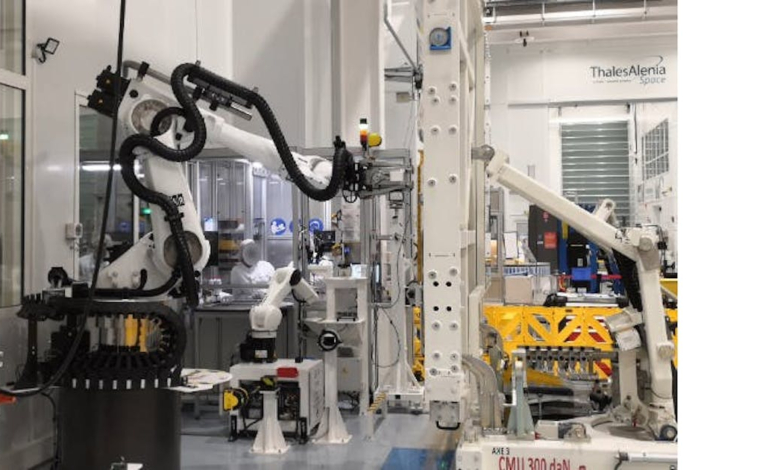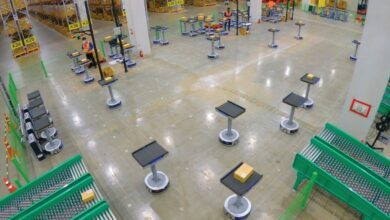Thales Alenia Space Automates Inspection and Installation Process

Thales Alenia Space (Cannes, France) recently implemented an automated inspection and installation system in its Cannes, France manufacturing facility.
A global space industry manufacturer, the company designs, develops, builds, and operates satellites and satellite-based high-tech systems for a variety of purposes and applications, including communications, navigation systems, environmental protection, security and defense, and space exploration.
The automated system is designed to do several tasks: inspect optical solar reflectors, which Thales Alenia Space manufactures, for flaws, apply adhesive to the individual OSRs, inspect the results of that process for errors and flaws, and finally, to install the reflectors on larger solar panels. The panels, once they are covered with OSRs, are then installed as protective outer walls on space satellites.
“A panel used as an outer wall is equipped with up to 7,000 reflectors,” AKEOPLUS COO Maxime Motisi, COO of AKEOPLUS( Chateau-Gaillard, France), a systems integrator hired to complete the project, says. “Each reflector (OSR) is about 40 x 40 mm in size, and each solar panel can be up to 5 x 3 m in size.”
Thales Alenia Space engineers developed the bonding process for the OSRs, inventing a powerful glue that can withstand the extreme harsh environmental conditions of space, as well as devising the most effective pattern of applying that glue to the OSRs for installation onto the solar panels.
Before Thales Alenia Space implemented the automated process, the process of inspecting and attaching each individual reflector was done manually. This process required several human employees who worked for hours at a time in physically uncomfortable positions. These employees inspected each individual OSR for defects. Then, following a very specific, prescribed pattern, applied a specially designed industrial glue to the OSRs and attached them, one at a time, to larger solar panels. The process, conducted over multiple daily work shifts, would take two or three employees per shift at least seven days, on average, to complete a single solar panel, Motisi says.
Related content: Titan Cement Adds Inspection System to Production Facility



